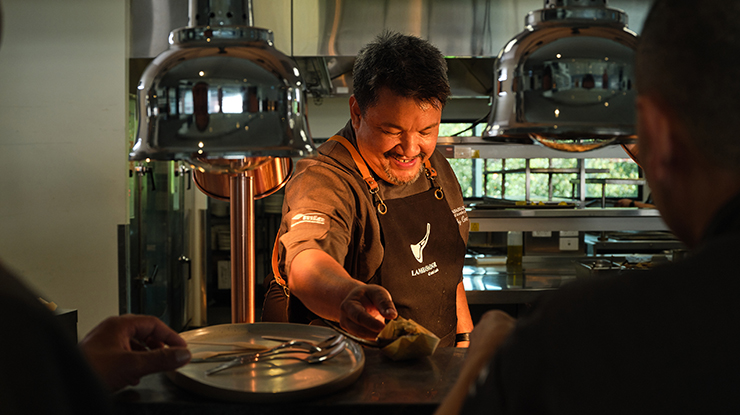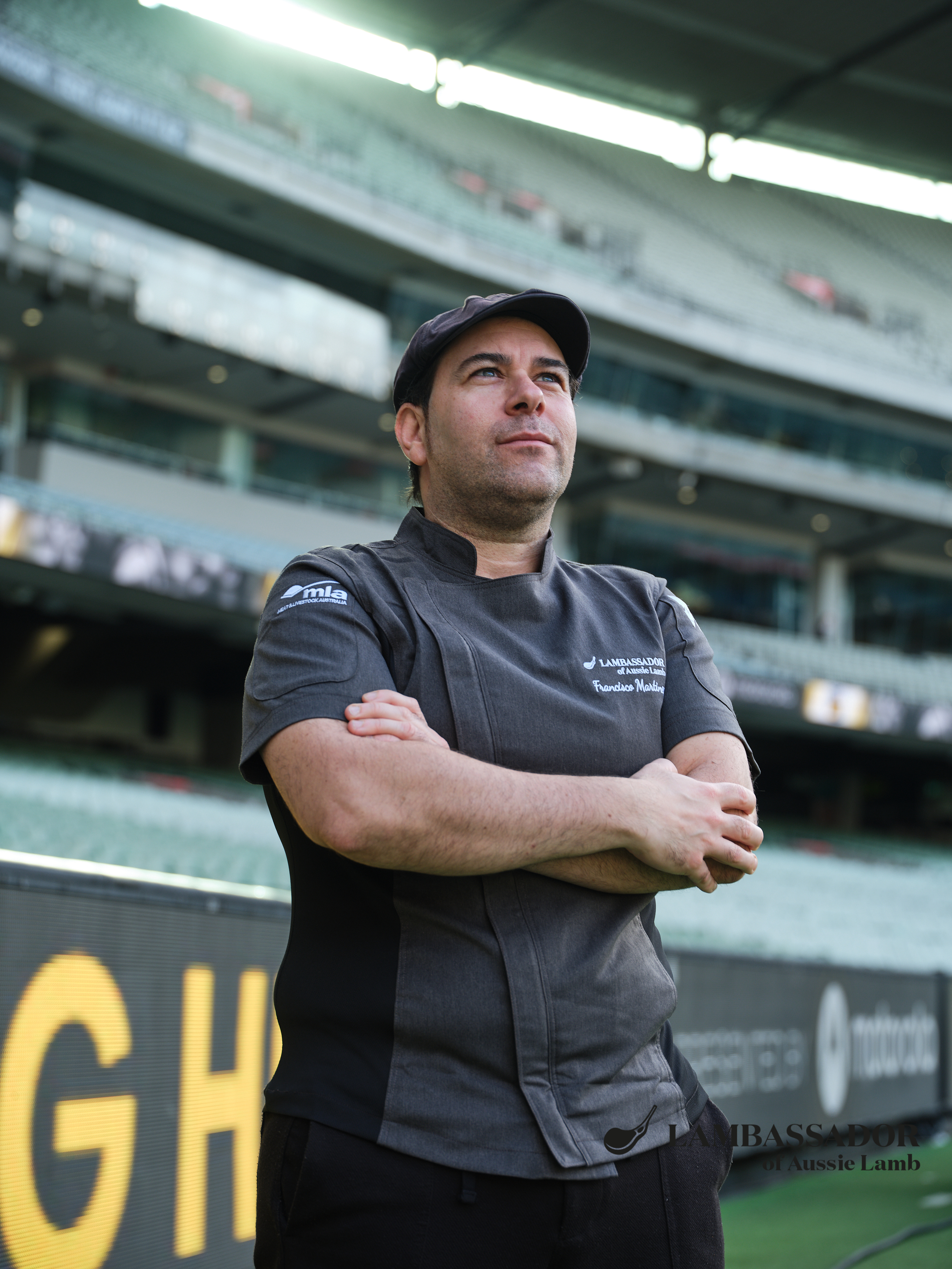
Lambassador delegation builds international demand
MLA showcased Australian lamb on the world stage recently, hosting the second annual Lambassador Delegation in Melbourne in May.
From its beginning in Japan in 2015, the Lambassador program has since grown to a community of more than 50 food professionals worldwide, forming an important part of MLA’s global agenda.
The Australian Lambassador tour is a program highlight. This year, 18 world-class chefs – from Asia, the USA, Canada, the UK and Middle East – experienced a week-long paddock-to-plate immersion, learning about the origins of Australian lamb, as well as a comprehensive range of masterclasses on lamb preparation, from butchery demonstrations through to cooking, presenting, and speaking about the product.
Getting out on-farm and meeting Australian lamb producers also gave these prominent chefs a new appreciation of the professionalism and expertise required to consistently produce high quality lamb, in often challenging environments.
Participants were also able to share ideas on innovative ways to cook with lamb, network with lamb supply chain stakeholders, explore Melbourne’s vibrant food scene and learn about local industry trends.
By building a network of professionals within global foodservice who are enthusiastic advocates for Australian lamb, MLA continues to strengthen its relationships within key international markets and drive demand for quality Australian red meat.
China Lambassador
Clinton Zhu (pictured) is the founder of FAN Culinary Education, a Shanghai-based cooking school focusing on training chefs with an international mindset, for roles in restaurants and high-end hotel chains.
Clinton said of his experience during the Lambassador delegation, “There was so much professional information from the farmers’ side. As chefs, we often talk only about the cuts and how we are serving them, we rarely discuss the breeding and genetics behind it all.
“Like us, our consumers enjoy Aussie lamb, but they don’t actually know where its from. Yes, it’s from Australia, but from which farm? Who is behind it? I think the responsibility for me as a delegate is to bring the story back to my country to tell all the people who love Australian red meat.”
In his role as an MLA Lambassador, Clinton runs the Australian Red Meat Professional Culinary Certification program. Delivered over a two-day period, the program teaches chefs and importers how to evaluate, cut and prepare Australian lamb and beef.
“Aussie meat importers are very important for the industry, because they bring the product to China and sell it,” Clinton said.
“If they don’t know how to evaluate the product, we can’t make good money and our farmers will not get well paid. So we try to educate them about what the industry needs and the advantages of Australian meat.”
“With our chefs, the program helps them understand how to best cook it and helps them see just how much they can depend on it to produce a quality dish.”
For Australian producers, Clinton says it’s important they understand that the Chinese market is very different to what it was 20 years ago.
“China is known for being very good at utilising the off cuts in our dishes and I believe it is very important in terms of both sustainability and profit.
“However, sometimes when I’m looking for premium cuts for special events, they’re very hard to find.”
“In the future, I would like to see more focus on premium cuts to China,” Clinton said. “The flaps and neck bones go to China mainly for use in hotpots. But there is also a lot of potential in high-end restaurants. Rump, loins, lamb racks, and saddles are very well received there. They are in high demand and attract a very high value here in China.”
UK Lambassador
Lambassador Francisco Martinez (pictured) is Spanish chef and partner in the UK’s Fazenda group of restaurants. He has worked in a number of award-winning restaurants, before arriving in the UK and starting Fazenda. He and his business partners opened the first Fazenda in Leeds and have opened a new restaurant every two years since. In July, the group opened their sixth, a flagship restaurant in London nearly twice the capacity of their previous venues.
With roots in the gaúcho heritage of Argentina and Brazil, lamb is a major theme at Fazenda; the group purchases 20 tonnes of lamb per month. Francisco says the company has developed a taste for Australian lamb because of its guaranteed quality and consistency.
“The way we grill the meat in our restaurants is quite different, in that we use rotisserie grills,” Francisco said. “For that reason, we always need a nice fat cap on the cuts, so you can slow cook it without drying it out. Australian lamb always is very consistent on the amount of fat cap and fat infiltration.”
“We also don’t marinate our lamb, so we cannot create different flavours to the meat. The flavour has to already be there. With Australian lamb, we just add rock salt, and that is where you can really see the quality of the product.”
In the coming years, Francisco’s strategy is to open another two London restaurants, then expand into the Middle East, all using Australian lamb.
“MLA’s representative in the UK, Stephen Edwards, knows our whole strategy and we’re planning what we can do together. As a company, I’m happy to shout that my lamb is from Australia, so we’re looking at ways of promoting Australian lamb, together with my brand of restaurant,” he said.
Francisco and Stephen have several promotional events planned over the coming months, including showcasing Australian lamb at the Face of London food festival, and the Saturday Morning Kitchen TV program.
“It fits with my brand, and it fits with what MLA wants to showcase,” Francisco said.
He wants Australian producers to know that they plan to bring more and more Australian red meat to the UK.
“Not only lamb, but beef as well,” he said.
“We believe the Australian product is really good, and now with the European cap lifted, there’s is a chance that the volumes can be there again. We are really looking to get consistent quality red meat that can allow us to achieve the volumes that we need.”





